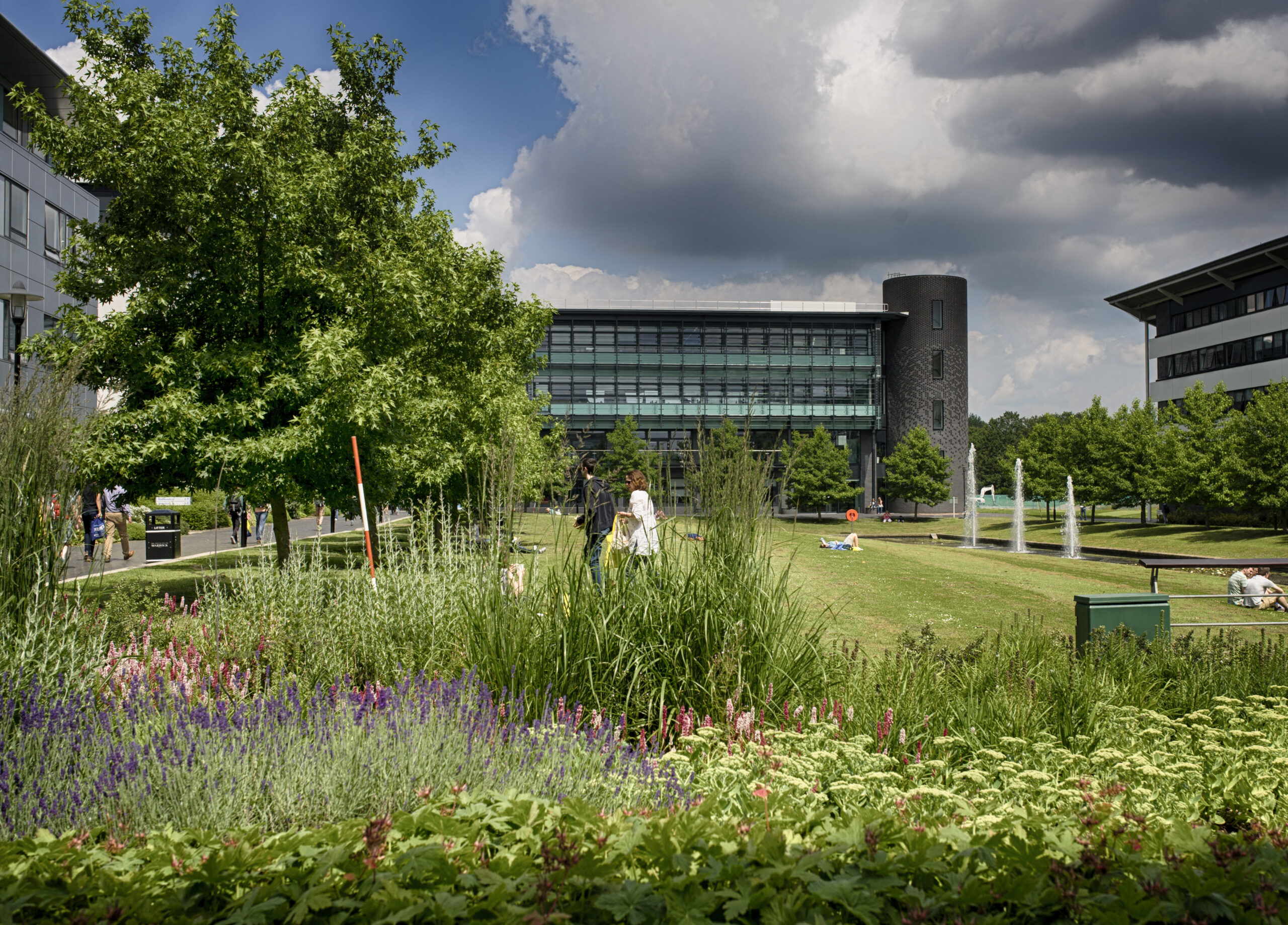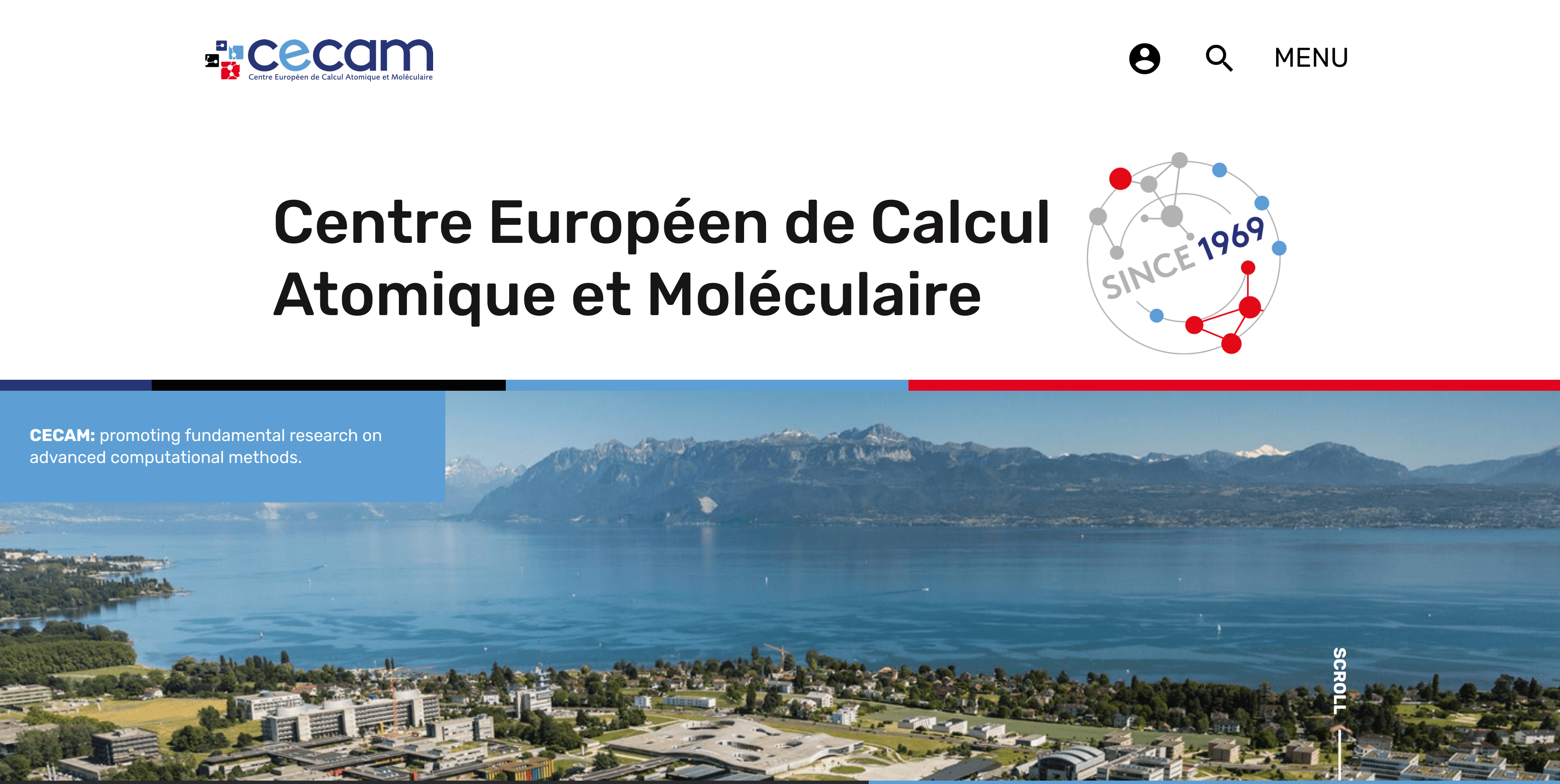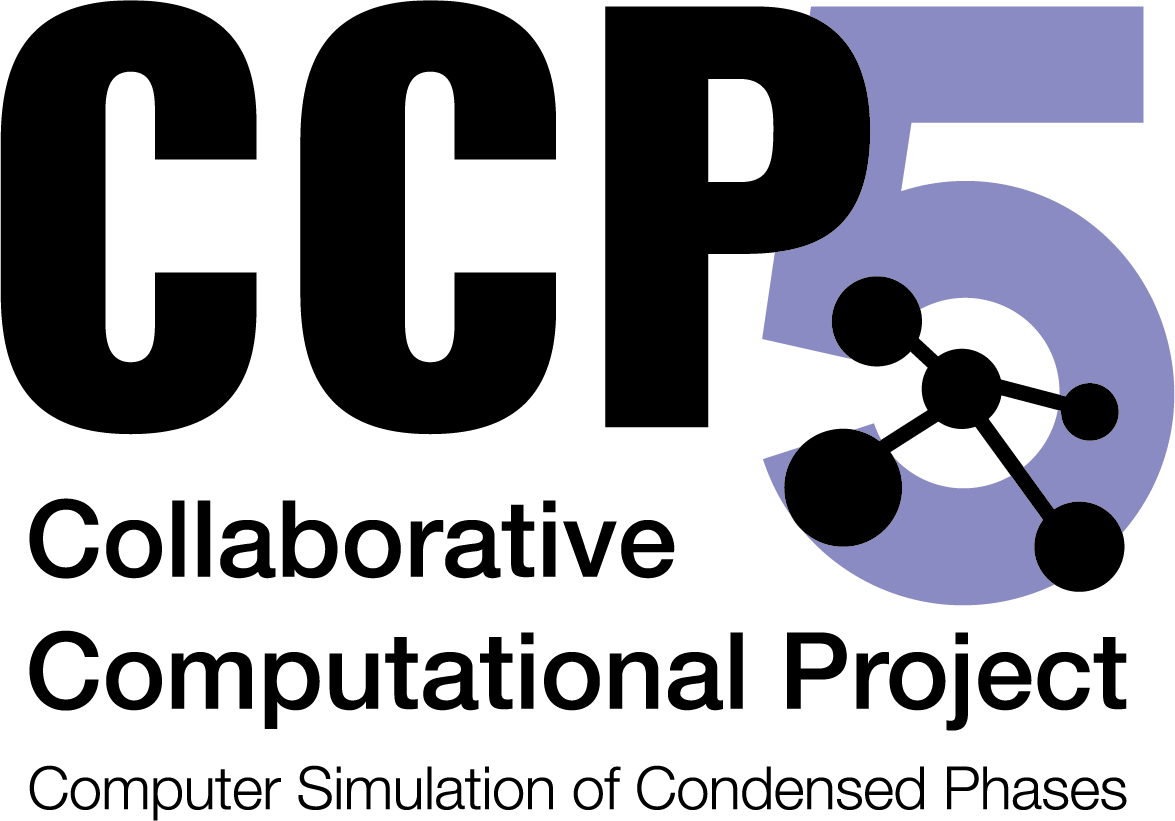
CCP5 Prize 2022 announced
Dr Colin Freeman, University of Sheffield



Computational Collaboration Project No 5
Welcome to the homepage of CCP5 . CCP5 is the Collaborative Computational Project for computer simulation of condensed phases and is funded predominantly by the Engineering and Physical Sciences Research Council (EPSRC) of United Kingdom. It was founded more than 40 years ago to promote the involvement of UK scientists in collaborative research in this area. Please browse our website to find more about our activities, our projects and people. Join the network to find about new opportunities about PhD or PostDoc positions, student scholarships, conferences and workshops supported by CCP5. Researchers in universities and public research labs can use, free of charge, the vast collection of supported and contributed software for non-commercial purposes. Please note that you can get in touch with our software team for any problems related to currently supported software. CCP5 encourages industrial engagement in many ways – via our workshops and conferences, which often have dedicated industry days, our “Simulation for the Experimentalist and Industrialist” course, student bursary scheme, software and members’ expertise.
CCP5 covers computer simulation of condensed phase materials at length scales spanning from atomistic to mesoscopic levels. Materials of interest are such as liquids, polymers, solids, surface materials and macromolecules. The idea is to harness a variety of expertises among the Community Members and to foster collaborations in a friendly and cooperative environment so as to carry out world-class researches effectively, both in terms of costs and efforts. The UK has a large and successful research community engaged this area of work. CCP5 plays a key role in achieving communication across this large community. The Project has a high international profile: approximately 50 % of the large membership (currently around 1400) is from overseas.
Software Development
CCP5 supports several simulation program suites for a wide range of simulation techniques such as the molecular dynamics (MD), monte carlo (MC), lattice Boltzmann (LB) and dissipative particle dynamics (DPD) etc. The software development has been carried out mainly by scientific software programmers at STFC Daresbury Laboratory, which is the world leading research center in developing and testing advanced computational methologies to fully exploit state-of-the-art massively parallelised supercomputers. For many years, Daresbury Laboratory has been working synergistically with CCP5 in terms of software support and developing new and often novel functionalities so as to enable the Community Members to carry out new science, ensuring UK is established and maintained at the forefront position in computer simulation of condensed phases.
Program Outreach
In order to promote and encourage knowledge exchange and research collaborative efforts among the Members, CCP5 has been organising a variety of activities on a regular basis. CCP5 has been organising sucessful CCP5 Annual Conference as a platform for research presentations and problem discussions. CCP5 also runs an annual Summer School that instructs 60-70 graduate students in the art of statistical-mechanics based simulation methods. Other activities are such as running a series of one- or two-day thematic workshops and facilitating tours of the UK by internationally leading scientists. In addition, a series of flagship projects has also been set up to produce cutting-edge software for the benefit of the CCP5 community to address issues beyond the capability of the current research effort.
CCP5 History
The project began in 1980, when it initially concentrated on the computer simulation of liquids using the Monte Carlo and molecular dynamics methods. Much of the early effort of CCP5 was directed towards exploiting the power of the Cray 1s computer then housed at Daresbury and as a result a very useful program library was developed. In 1983, the scope of CCP5 was extended to include the calculation of lattice properties by energy minimisation methods. This extremely important area of research has many applications in both academic and industrial laboratories. The skills required in these different areas are highly complementary; the search for good model potentials and the application of both techniques to studies of the dynamical properties of crystals are two examples of where a combined approach can be of great benefit.
